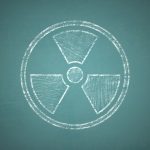Ion air purifiers offer a unique method of cleaning air that provides consumers with the choice of an air cleaner that does not require replacement filters.
A huge selling point when you realize the investment you are going to have to make in filter replacements over the life of an air purifier.
But does the benefit of being a filter less air purifier also come with the risk of being dangerous?
Table of Contents
Comparison Table of Air Purifier Types
| Feature/Type | Ionizer | HEPA | Activated Carbon | UV Air Purifiers |
|---|---|---|---|---|
| Filter Replacement | Not required | Required | Required | Not required for UV, but may have a pre-filter that needs replacement |
| Effectiveness Against Viruses/Bacteria | High (neutralizes) | High (captures) | Low (does not capture viruses/bacteria well) | High (kills) |
| Ozone Production | Possible, but low | None | None | None |
| Maintenance Requirements | Low | High (filter changes) | Moderate (filter changes) | Low |
| Primary Function | Particle agglomeration and pathogen neutralization | Particle filtration | Odor and gas absorption | Pathogen destruction |
Are ionizer air cleaners dangerous?
Ionizer air cleaners operate by charging airborne particles with ions, causing them to clump together and settle out of the air.
While effective at reducing particulate matter, these devices have a significant drawback: they produce ozone as an unintended by-product.
The Science Behind Ozone Risks
Ozone (O3) is a molecule composed of three oxygen atoms, recognized by the scientific community for its reactive properties. While beneficial in the Earth’s stratosphere for blocking harmful ultraviolet radiation, at ground level, ozone becomes a potent lung irritant. The Environmental Protection Agency (EPA) highlights that exposure to ozone can lead to several adverse health effects, including:
Respiratory Issues: Ozone can irritate the respiratory system, causing coughing, throat irritation, and airway inflammation. It can exacerbate conditions like asthma and bronchitis, leading to increased medication use, doctor visits, and even hospital admissions.
Chest Discomfort: High levels of ozone exposure can lead to chest pain and discomfort, making breathing feel more laborious and less comfortable.
Long-term Health Effects: Prolonged exposure to ozone can lead to more severe respiratory conditions and has been linked to a decrease in lung function over time.
Regulatory Actions and Recommendations
In response to these risks, the EPA has taken regulatory actions against the sale of ozone generators marketed as domestic air purifiers. These devices, which intentionally produce ozone for air sterilization, pose a significant health risk when used in enclosed living spaces.
The strong oxidizing properties of ozone mean it can react with not just airborne pollutants, but also with biological tissues in the lungs, leading to potential damage.
While ionizer air cleaners can offer benefits in reducing airborne particles, their production of ozone as a by-product raises important health concerns.
That makes it completely unsafe as an everyday air cleaning device that you turn on and leave.
 Ionizer air purifier dangers
Ionizer air purifier dangers
Ionizers typically manufacturer ions in one of two ways.
1. Corona discharge which amounts to a lightning simulation
2. Ultraviolet light
Though not nearly the level of ozone that an ozone generator would create,
The presence of ozone at all creates a need for safety precautions.
The good news is that ionizers do not produce Ozone gas as an intentional method of air cleaning.
And the level of ozone manufactured is below the 0-50 ppb Federal limit for the amount of ozone a device can create before it becomes a health hazard.
But that does not negate the fact that ozone can build up when an ionizer is used wrongly or in a wrongly specified space? No.
In other words if you purchase a ionizer that is made to use in 1000 square feet, the same ionizer is going to create much too much ozone in 100 square feet.
You’re still required to follow the directions for the Ionizer to be used safely.
For many, the realization that an air cleaner might produce ozone and inadvertently compromise air quality leads them to focus exclusively on filtered air purifiers. This choice is understandable, given the wide array of effective options available.
However, in moving away from ionizer-based systems, they might overlook the unique advantages these devices offer, which traditional filtering purifiers can’t replicate.
Air Ionizer Advantages
In addition to the clear advantage of being filterless, thus eliminating the need for routine maintenance and filter replacements that HEPA air purifiers require, ionization air purifiers offer a potentially more significant benefit: their impact on bacteria and viruses.
A study by the University of Michigan found that “dangerous airborne viruses are rendered harmless on-the-fly when exposed to energetic, charged fragments of air molecules,” demonstrating the efficacy of air ionization in neutralizing pathogens.
This particular research utilized a plasma bipolar ionizer that generates both positive and negative ions, supporting the effectiveness of ionization technology.
Furthermore, Photo Catalytic Oxidation (PCO) ionizers create ions through a process that involves ultraviolet light and a titanium oxide catalyst. This reaction produces hydroxyl and hydroperoxide ions, potent agents capable of sanitizing both the air and surfaces within a room. These findings, echoed by other similar studies, highlight the unique benefits of ionization air purifiers in enhancing indoor air quality and safety.
The use of PCO has been described as spritzing an entire room with hydrogen peroxide. The same stuff you put on a cut or abrasion to disinfect the area. Imagine disinfecting your entire room with an ionizer.
Benefits and Risks of Ionizer Air Purifiers
| Benefits | Risks |
|---|---|
| No filter replacement required | Potential ozone production |
| Effective against viruses and bacteria | Must be used in unoccupied spaces for safety |
| Can improve HEPA filter efficiency | Ozone can irritate lungs and exacerbate respiratory issues |
| Low maintenance | Regulatory guidelines limit use due to ozone |
Enhancing HEPA Filter Performance
An intriguing aspect of ionizer air purifiers is their ability to augment the efficiency of HEPA filters.
By ionizing airborne particles, they cause smaller particles to conglomerate into larger clusters. These larger particle clusters are then more easily captured by HEPA filters, which might otherwise struggle to trap such fine particulates.
This synergistic effect not only extends the life of HEPA filters by reducing the burden of fine particles but also improves overall air purification efficiency.

Safe Use of Ionizer Air Purifiers
To utilize an ionizer air purifier safely, it’s important to recognize that while most ionizers produce minimal ozone, they do generate it to some extent. The most prudent method to employ an ionizer is to treat it as a form of air treatment, meant to be used in unoccupied spaces.
Similar to professional ozone generators, which are used under strict guidelines ensuring no people, animals, or plants are present in the area during operation, an ionizer should be used with comparable caution. The treated area should be allowed to air out completely before being occupied again.
By adopting this careful approach, you can harness the advantages of ionizer air purifiers without risking exposure to potentially harmful effects of ozone for yourself or others.
Ionizer Air Purifier Usage Guidelines
| Guideline | Details |
|---|---|
| Room Occupancy | Use in unoccupied spaces only |
| Operational Time | Limit use to specific durations and not continuous operation |
| Space Size | Match the purifier’s capacity to the room size |
| Airing Out | Allow the room to ventilate post-treatment before occupancy |
| Maintenance | Regularly check and clean the device as per manufacturer’s instructions |
Conclusion
Ion air purifier danger comes in the form of ozone.
Because of the way ions are manufactured in an ionizer, namely ultraviolet light or Corona discharge which is the real definition of lightning in a bottle.
Ozone is the unfortunate by-product.
And since ozone is such a powerful oxidant, it will not only oxidize the pollutants in your air, it can also oxidize your lung tissue.
Though ionizer air purifiers do not create the level of ozone that a ozone generator does, ozone, even at a low level can build up and be harmful to breathe.
Despite the need for cautious use due to ozone generation, ionizers present unique advantages not found in other air purifiers, such as eliminating the need for filter replacements and actively destroying viruses and bacteria.
These benefits make ionizers an attractive option, albeit with a usage approach that differs from that of HEPA air purifiers.
An air ionizer should be treated as a air treatment rather than a set it and leave it filtering type of air cleaner.
By treating an air ionizer as a room treatment, used only when the space is unoccupied and allowing sufficient time for dissipation, you can enjoy all its benefits without the risks associated with ion air purifiers.
Furthermore, one of the standout advantages of ionizers is their filter-free operation.
Interestingly, they can also enhance the performance of HEPA filters by aggregating smaller particles into larger clusters, which are then more readily captured by the HEPA filter, thus improving its efficiency.
FAQ: Ionizer Air Purifiers
1. What is an ionizer air purifier?
An ionizer air purifier is a device that uses electrical charges to generate ions, which attach to and neutralize airborne particles like dust, pollen, and pathogens, making them easier to filter or causing them to settle out of the air.
2. How do ionizer air purifiers differ from HEPA air purifiers?
Ionizer air purifiers work by charging airborne particles and do not require filter replacements, while HEPA air purifiers use dense physical filters to trap particles. Ionizers can also reduce the presence of viruses and bacteria more effectively than standard HEPA filters.
3. Can ionizer air purifiers produce ozone?
Yes, ionizer air purifiers can produce ozone as a by-product of ion generation. However, the amount is typically low and within safety standards set by regulatory bodies.
4. What is the smell of ozone, and is it normal to detect it from an ionizer air purifier?
The smell of ozone is often described as crisp or similar to that of chlorine. Detecting a faint ozone smell from an ionizer air purifier can be normal due to the ozone produced during ionization. However, strong ozone odors may indicate excessive ozone levels, which could be harmful.
5. Are ionizer air purifiers safe for people with asthma or other respiratory conditions?
While ionizer air purifiers can remove allergens from the air, the ozone produced can irritate the respiratory system. People with asthma or other respiratory conditions should consult with a healthcare provider before using an ionizer air purifier.
6. How should an ionizer air purifier be used safely?
To use an ionizer air purifier safely, operate it in unoccupied spaces and allow the room to ventilate before re-entry. Always follow the manufacturer’s guidelines regarding room size and operational duration.
7. Can ionizer air purifiers improve the efficiency of HEPA filters?
Yes, ionizer air purifiers can enhance HEPA filter performance by causing smaller particles to clump together into larger particles, which are more easily captured by HEPA filters.
8. How often should I clean or maintain my ionizer air purifier?
Maintenance frequency for ionizer air purifiers varies by model, but generally, it’s recommended to check and clean the device according to the manufacturer’s instructions to ensure optimal performance. This often includes cleaning the ionizing rods or plates to maintain effective ion production.







